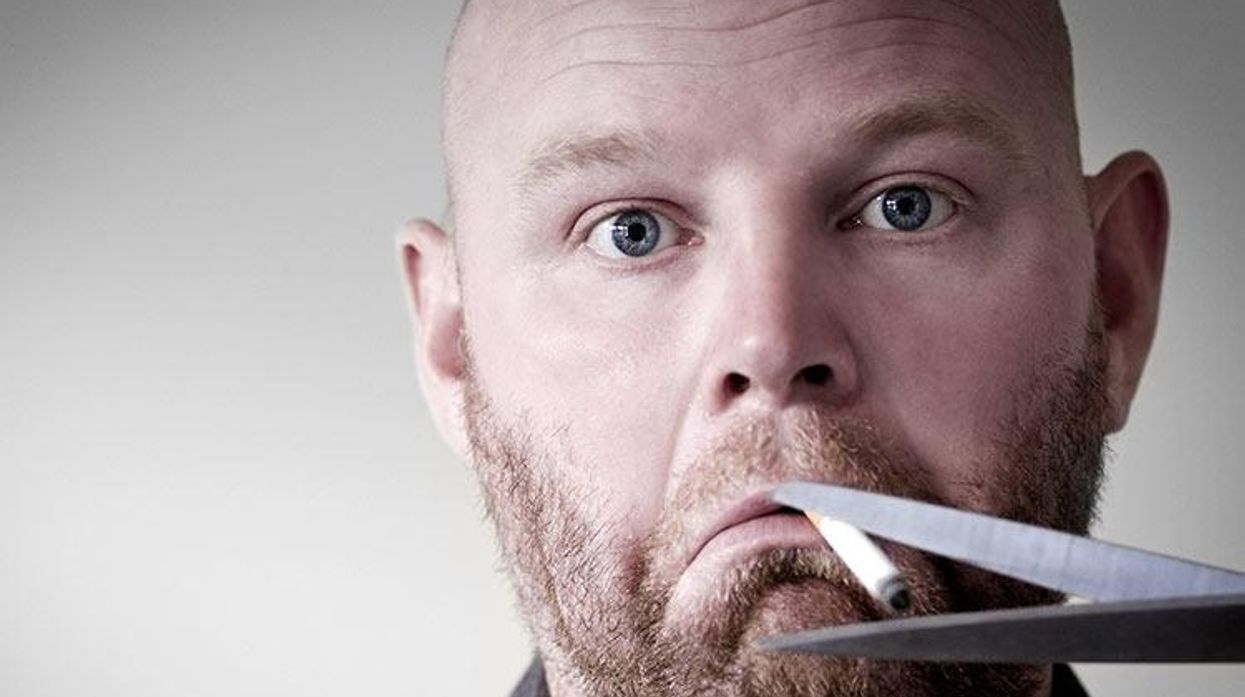
While much of the nation gives up cigarettes, many LGBT people continue to puff away. Here's what one antitobacco professional is doing about it.
November 23 2015 7:04 AM EST
By continuing to use our site, you agree to our Privacy Policy and Terms of Use.

While much of the nation gives up cigarettes, many LGBT people continue to puff away. Here's what one antitobacco professional is doing about it.
As the clinical director of the largest nonprofit tobacco quitline in the United States, I'm often torn by the data. On one hand, the progress we're making is encouraging. The smoking rate among adults is at an all-time low at 17.8 percent. Cigarette smoking among high-schoolers is the lowest it's been in more than 20 years, and studies show our quitline coaches make a difference.
At QuitLogix, the tobacco cessation program run by National Jewish Health in Denver, we field up to 22,000 calls per month. Our coaches provide counseling and access to medications that help people quit using tobacco products. Our own research shows that this combination of support has helped 37 percent of those who call us successfully quit using tobacco, which is significantly greater than other methods. We're very proud of that.
But for all there is to celebrate in those numbers, there is other data that tells a much different story. The National Adult Tobacco Survey shows that tobacco prevalence among LGBT people is 50 percent higher than any other population. In another study, conducted in Colorado, researchers found that LGBT people who smoked and wanted to quit were five times less likely than others to call a quitline. These alarming statistics set us on a path to determine why.
At QuitLogix, we work closely with LGBT advocacy groups to better understand the challenges of these communities, so we can help them successfully quit smoking.
Since the early 1990s, tobacco companies have spent considerable resources marketing to LGBT people and adolescents, in particular. Similar to how fast-food restaurants target kids and adolescents, they aim to create brand loyalty for life.
LGBT people also tend to gather in restaurants, bars, and nightclubs. In large groups of their peers, LGBT individuals naturally feel a sense of acceptance and safety, and are often more likely to engage in drinking and smoking.
But perhaps the biggest reason that more than half of the LGBT population lights up is to deal with discrimination - from family members, society at large, and even when seeking health care services. QuitLogix has always provided a high level of customer service, but we wanted to offer a more personalized experience for every caller. Two years ago we made it a top priority to ensure LGBT individuals and members of other high-risk populations felt welcome when they called our quitline. We redesigned our program to be more supportive of cultural differences, including gender identity. Our coaches received extensive training from LGBT experts to help understand the unique factors and needs of LGBT individuals and received advice on how to reduce barriers to care and eliminate health disparities in this group.
Finally, we worked with LGBT HealthLink to pilot an enhanced data collection strategy on more than 30,000 calls. The strategy was overwhelmingly successful, and we are now working with LGBT HealthLink to report the findings. Our ultimate goal is to remove barriers that prevent people from seeking the care they need to be healthier.
The more people from specific communities who seek help to quit smoking, the better we can address all tobacco-related diseases. We have a long way to go to turn the tide in the LGBT population when it comes to tobacco, but we're taking important steps: We're working with community partners, changing policies, performing training, collecting data, and sharing our successes for national replication.
We feel reducing health disparities in LGBT communities isn't just about individual choices -- it's about policy leadership and corporate stewardship too. We need to continue to initiate the conversation whenever and wherever we can. What will you do?

Charlie Kirk DID say stoning gay people was the 'perfect law' — and these other heinous quotes